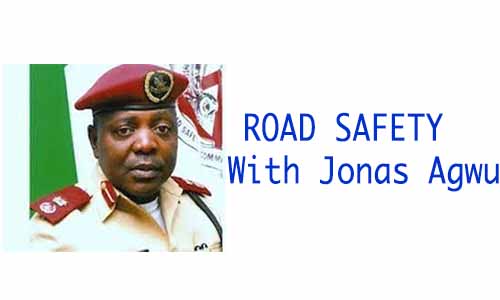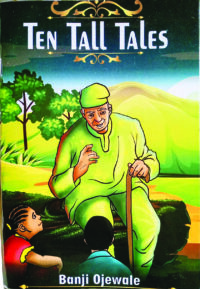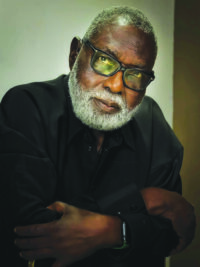ROAD SAFETY
On 25th July, 2025, I was at my Church for the July, 2025 monthly all-night prayer meeting. For the last 28 years, I have made it a routine or better still a religious commitment to be there to seek God’s merciful guidance for the coming month and to express my profound gratitude for His divine kindness despite my human frailties.
After hours of praise, testimonies and prayers, we rounded off at about 4.30 am or there-about and closed the service for the day. On my way home, nature came knocking. The doze was brief but enough to be worried about my safety. I quickly took a few minutes nap to knock off the temptation of driving fatigued.
When I treated tyre blowouts last week, I promised to consider excessive speeding, as swell as fatigue amongst the dangerous trio. Today, I wish to make that promise come true as I seek to throw my searchlight on one crazy road safety risk behaviour that we treat mildly.
As I once told a friend, especially for those who believe in God, there is no prayer point for binding sleep and fatigue. The remedy remains rest and sleep as nature cannot be treated with levity.
For the records, I must first remind you that road safety is a shared responsibility. As we navigate this wet and rainy season as dictated by climate change, this interesting material on fatigue is to help road users guard against avoidable tragedies, deaths or multiple injuries.
Although data on road crashes to justify the danger of fatigue in our clime is scarce, but globally fatigue remains a hidden killer. Many have died in the name of tyre burst, speed, dangerous overtaking when in actual fact the real factor may have been fatigue that was ignored as nothing serious. What really is fatigue?
Before answering this, let me inform you that there are three types of fatigue: transient fatigue brought on by extreme sleep restriction or extended hours awake within one or two days. Others are cumulative and circadian fatigue.
Cumulative fatigue is a build-up of tiredness and decreased performance that results from inadequate recovery between periods of physical or mental exertion. Circadian occurs when the circadian clock in the brain, which drives daily behavioral and physiological rhythms, is not synchronized with ‘real’ local time.
According to the Australian Transport Safety Bureau, a combination of any of the following warning signs means the driver is becoming fatigued: Yawning, eyes feeling sore or heavy, vision starting to blur, daydreaming-thinking of everything else but not your driving, not concentrating, becoming impatient, reactions seem slow, speed creeps up and down.
Others include making poor gear changes, wandering over the center line, or onto the road edge, feeling stiff or cramped, you start ‘seeing things’, you feel hungry or thirsty, you have difficulties keeping your head up or eyes open, you hear a droning or humming in your ears, you don’t notice a vehicle until it overtakes you.
When you notice these signs, please don’t ignore them. Don’t plead the blood either. Don’t even bother binding the innocent devil. Hey, not even time to blast in unknown tongues. It is not the devil. Not your in-law. Not your angry landlord. Not even your jealous colleague in the office and neither the road condition nor your car either, but you. Yes, you.
Once fatigue sets in, there is little you can do about it except stop as soon as possible and take a break like I did. Take a break, sooner rather than later. Driving with fatigue can be just as deadly as drunk driving or excessive speeding. The problem of fatigue is that it slowly develops and drivers often don’t realize that they are too tired to drive safely. Ironically, there is always a warning sign. It could begin with yawning.
Fatigue, according to research, is caused by lack of sleep or broken sleep. Alcohol and some medications can also cause sleepiness. Although the need for sleep varies among individuals, sleeping eight hours in a 24-hour period is common. The effect of sleep loss builds up. Regularly losing 1 to 2 hours sleep a night can create a ‘sleep debt’ and lead to chronic sleepiness over time. Just being in bed doesn’t mean a person has had enough sleep. Disrupted sleep has the same effect as lack of sleep. illness, noise activity can interrupt and can reduce the amount and quality of sleep.
Like all other driving habits or problems, fatigue has its fair share of myths. For those freaky about night trips or night journeys, the notion is that it is safer to make the trip at night in order to avoid daytime traffic build up, as well as save cost and time.
The fact, however, is that your body has a normal 24-hour rhythm pattern built into it. If you are driving when you would normally be sleeping you will be fighting yourself to stay awake. The chances of falling asleep at the wheel after your normal bedtime, especially in the early hours of the morning, are very high.
There is also the notion that it is a good idea to start the trip after work. Some believe they can cope with driving long or short distances despite the pressure of work, multiple meetings and other official and unofficial engagements which are often heightened during the ember months with increased motorization. This same mindset personally affected me whenever I am posted to the field while in service with lots of travelling and the urge to find time for my family.
I love my two sons like heaven and would do everything to spend valuable time with them and my lovely wife like every loving father or husband. But do you know the risk involved? Travelling after work is certainly not ideal and this is a fact. After the mental and physical office work demands during the day, you will be too tired even though you will not realize it. The safest thing to do is to get a goodnight sleep (about 7-8 hours) of undisturbed sleep] and start your journey the next morning.
There are those who think that loud music will keep you awake. Agreed that loud music can, however it will help for a while. It might even distract you from the driving task or even send you to sleep. What about coffee? Gworo? What if combined with cigarettes? Caffeine is only a short-term solution and will have less effect the more often you use it. It might make you feel more alert but it won’t keep you going for long. Sleep remains the long-term solution.
This reminds me of a personal experience way back at the University of Lagos. Although, it had nothing to do with driving, it however taught me a little lesson about cheating nature. While on a post graduate programme, we went to what was then one of the bukas on campus to fill our stomach. After a good meal, my friend and classmate nick-named folly, suggested we buy Kolanut and top up with his favorite Saint Morris. Barely thirty minutes later, he started dozing and couldn’t continue reading but had to take a nap; an indication that combined caffeine from gworo ( kolanut) plus cigarettes is no substitute for sound sleep.


















Leave a comment